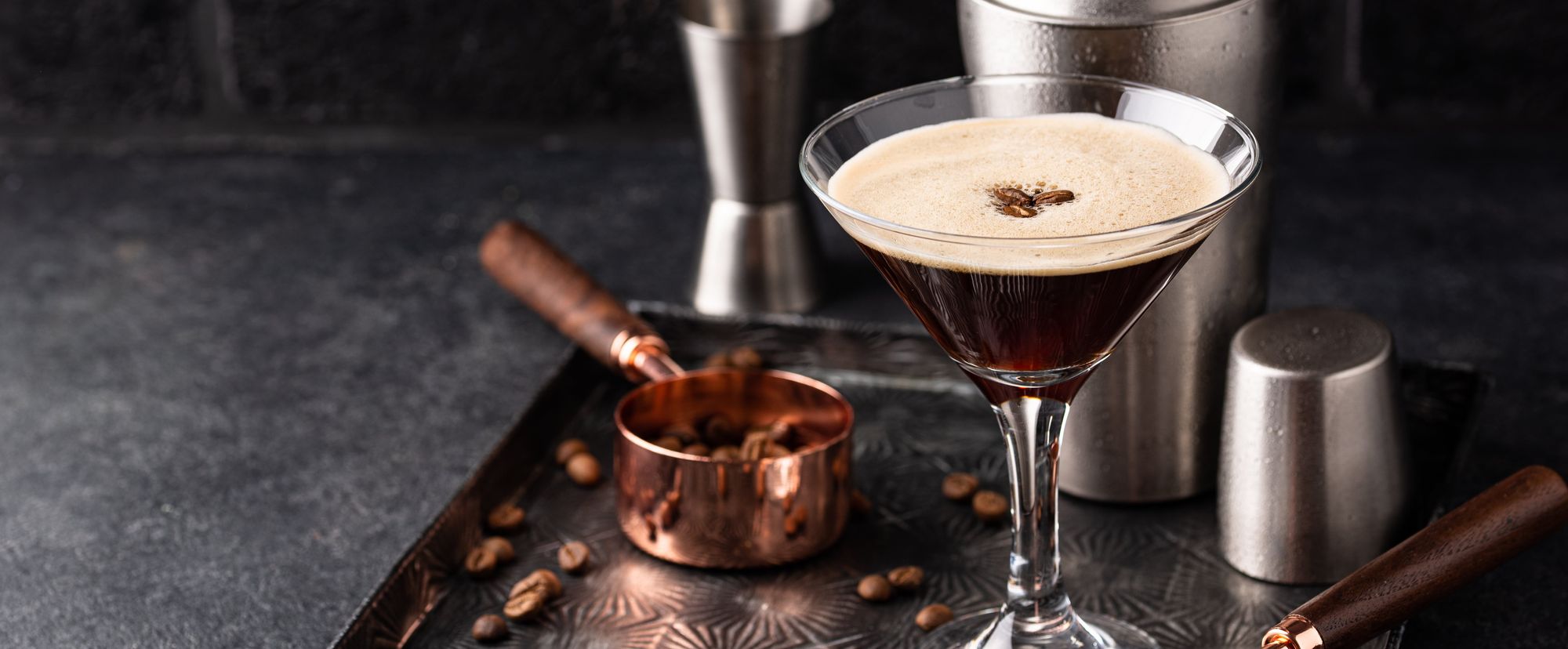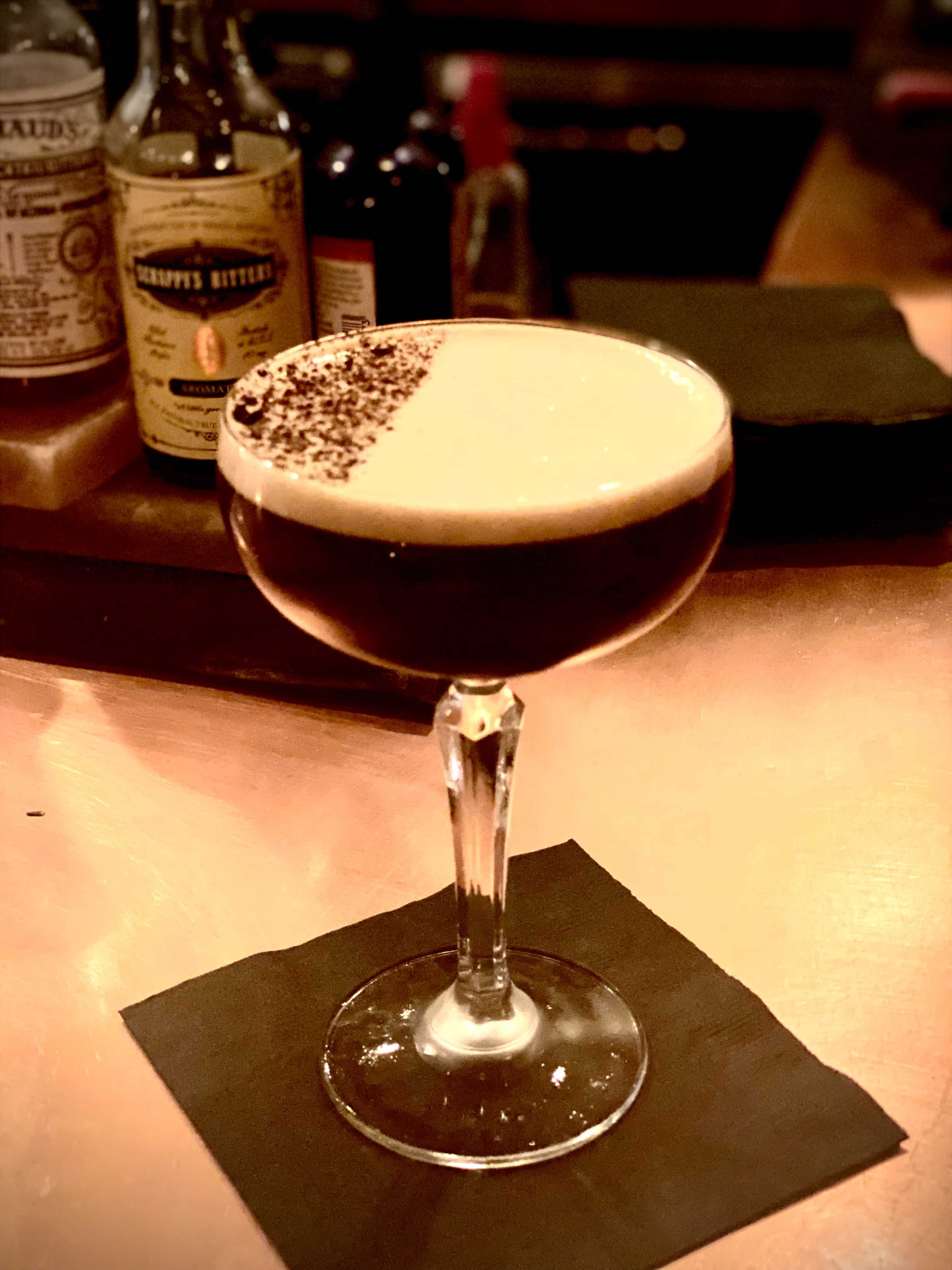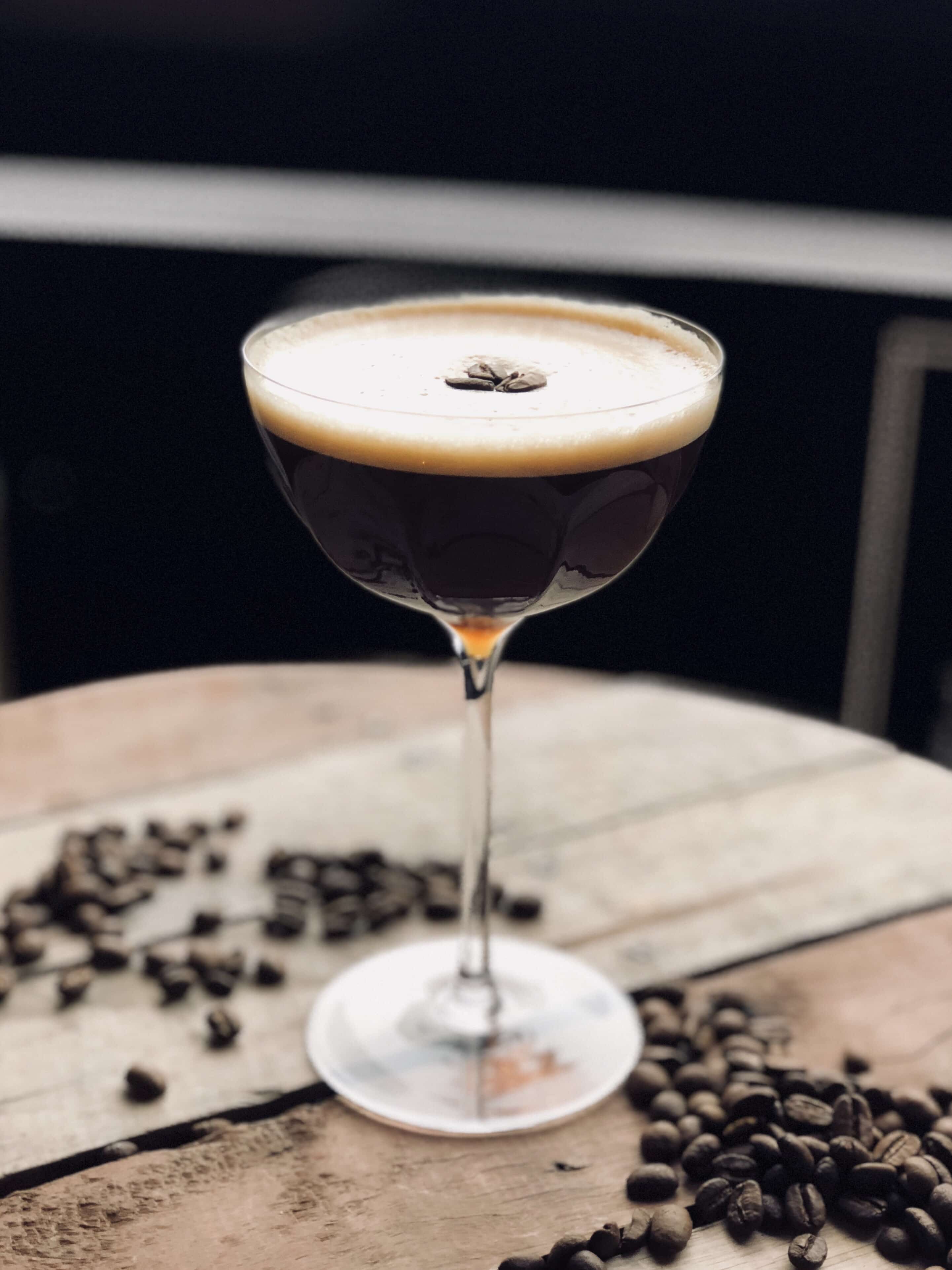In Defense of the Espresso Martini
Every year, it seems another cocktail is the target of inexplicable ire and intense kvetching by both the press and certain bartenders. In 2019, the Aperol Spritz found a laser sight on itself, being called “not a good drink” by the New York Times.

Every year, it seems another cocktail is the target of inexplicable ire and intense kvetching by both the press and certain bartenders. In 2019, the Aperol Spritz found a laser sight on itself, being called “not a good drink” by the New York Times. This statement is patently false, as the Aperol Spritz is a simple, refreshing cocktail that is a welcome refreshment on a summer day. The NYT cited mostly issues with the quality of the individual ingredients (namely gin and Prosecco), but this can be said of literally any drink.
The question of quality is always important: even the most classic of cocktails can turn sour if the right ingredients are not utilized. Take the Negroni, for example. If turned vermouth and cheap gin are used, it’s going to be a bad drink; but, if quality is kept in check, it’s a foolproof, delightful quaff. And if you are reading this, put your open vermouth in the fridge, already.
But as another year has passed, thankfully the anti-Aperol crowd has calmed, but no cocktail is safe from being the target of the next hated-upon drink. In 2021, the Espresso Martini took the thorny crown of judgment from the Aperol Spritz. So let's take a closer look if the Espresso Martini is deserving of this ignominy.
HISTORY OF THE ESPRESSO MARTINI
The Espresso Martini rose to popularity in the 1980s when, as the story goes, famed mixologist Dick Bradsell was asked by a supermodel (rumored to be Kate Moss) to make something that would, "wake me up, and fuck me up." Thus the Espresso Martini—née the Vodka Espresso—was born.
The 1990s ushered in the Times of the Tini, where anything served in an up-glass was dubbed a "whatever"-tini, such as the Appletini, Chocolate Martini, French Martini, and Lemon Drop Martini. No longer was tini-ness reserved only for gin and a whiff of dry vermouth—anything could be a tini. The Espresso Martini found a welcome home in these times, especially when folks wanted to keep partying while still maintaining a solid buzz.
ANATOMY OF AN ESPRESSO MARTINI
So what is an Espresso Martini? A true Espresso Martini is actually very simple, featuring espresso, vodka, coffee liqueur, and simple syrup. That's it: it's simple, refreshing, a little rich, and yes, will wake you up. It's the perfect after-dinner drink and, when well-made, absolutely delicious. The best cocktails are usually the simplest ones, but, as with even the most classic of recipes, things can take a turn for the worse.
Perhaps those with such severe distaste for the Espresso Martini have had one that isn’t up to snuff. There should be no cream, dairy, cream liqueur, or dairy substitute of any kind. Extraneous flavors are possible, as long as they do not make the drink cloying or distract from the coffee-forward flavor. Certainly, there is room for creativity, but as anyone who has been to a Starbucks knows, the concept of coffee can be quickly bastardized into a diabetes-inducing milkshake in coffee’s clothing.
New York Magazine (via Grub Street)—the publication that fired the first shot against the Espresso Martini—quotes bartenders hating on the drink because they are "annoying" to make and are "trendy." This hardly warrants hate against a cocktail, especially since there are drinks much more labor-intensive than the four-ingredient Espresso Martini (I'm looking at you, Ramos Gin Fizz). This sentiment is reminiscent of the post-Die Another Day Mojito craze that led to a mint-muddling-mania across the United States, which mixologists loathed.
Others cited the issue of the hot espresso being at odds with the cold shaking, which can easily be mitigated by pre-pulling espressos as part of mise en place, or subbing in cold brew. The amount of labor (measuring, shaking, straining) required is the same as for any shaken drink, so it is not more difficult to make. As for the issue with it being "trendy," bartenders are just as guilty of birthing flavor trends as customers are. Just look at the proliferation of smoked cocktails (much more a pain than a shaken drink with such few ingredients and minimal garnish) or the Fernet frenzy.
I am certainly not hating on bartenders, here, though, but I am saying that drink trends ebb and flow and bars and restaurants must to adapt to them to stay relevant. If the pandemic taught us anything, it's that the service industry is scrappy and can pivot quickly when required to. But people love to hate on whatever is popular because liking something popular is "uncool," I guess. An entire cocktail cannot be outright dismissed because of a bad service night of woo girls wanting to drink like Kate Moss; I am sure there were gaggles of obnoxious girls seeking a Carrie Bradshaw-esque NYC experience with orders of dozens of Cosmos in the late 90s, but that does not make it a bad drink.
BUT I HATE VODKA!
Ah! The old "I hate vodka" excuse. I love hearing folks cite this reason for dismissing an entire cocktail. Just because the original recipe of a drink is made with vodka doesn't mean you must make it with vodka. Vodka is odorless, colorless, and (usually) tasteless. The vodka is meant to amp up the octane in a drink, not add flavor (unless it's flavored vodka and that's a different story and, well, you know what I mean).
A few weeks ago, I had a lovely dinner at Virtu Honest Craft in Scottsdale, Arizona. Virtu boasts the largest selection of amari (bitter Italian liqueurs) in the state of Arizona, so of course I found my way there. In chatting with the head bartender, Fernando Bambaren, we got on the topic of the Espresso Martini. Knowing I am a lover of bourbon, he crafted an exceptional twist on the classic Espresso Martini with bourbon and amaro: no vodka to be found! I am certain that anyone reading this now who has avoided the Espresso Martini due to its vodka content, will love this variation. The bourbon and amaro play well with the chocolate and bitter notes of the coffee, and the final result is both rich in flavor and light in texture.
BAMBAREN BOURBON ESPRESSO MARTINI

INGREDIENTS
2 oz Elijah Craig Bourbon
1 oz Espresso
1/2 oz Tuve Black Note Amaro
1/2 oz Borgehtti Espresso Liqueur
1/2 oz Simple Syrup (1:1 sugar:water)
1 pinch salt
DIRECTIONS
Combine ingredients in a cocktail shaker. Add ice and shake vigorously. Double strain into coupe or martini glass. Grate a coffee bean across the resulting crema for garnish.
But if you would like to give the old faithful version a try, here is a foolproof recipe I revisit over and over again. My main addition is the lemon peel expression at the end. This lightens the coffee flavor with a spritz of citrus, as is a common way to serve espresso in Italy.
CLASSIC ESPRESSO MARTINI

INGREDIENTS
1 oz Vodka (I use Ketel One)
1 oz Espresso or Cold Brew
1 oz Mr. Black's Cold Brew Coffee Liqueur
1/2 oz Rich Simple Syrup (2:1 sugar:water)
DIRECTIONS
Combine ingredients in a cocktail shaker. Add ice and shake vigorously. Double strain into coupe or martini glass. Express lemon peel across crema. Garnish with 3 whole coffee beans.
As I always say, the better the ingredients, the better cocktail. Sure, Kahlúa is fine (I mainly use it for White Russians), but there are so many other amazing coffee liqueurs out there to try. Mr. Black's is my all-time favorite, as it delivers a strong coffee flavor without cloying sweetness.
J. Rieger Co in Kansas City makes a Caffè Amaro liqueur that can be substituted entirely or partially for other coffee liqueur for a more herbal, bitter taste. Caffè Amaro is also rested in whiskey barrels, so it carries a bit more of that whiskey flavor we all love. There are other excellent options on the market, including St. George NOLA Coffee Liqueur (earthier), Jägermeister Cold Brew (herbal), or Patrón XO Cafe (Tequila base). And don't sleep on your smaller craft distillers, such as Lockhouse Distilling's Coffee Liqueur. So think outside the usual vodka box and find the Espresso Martini that speaks most to you.
